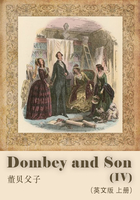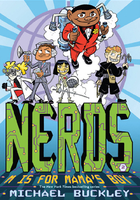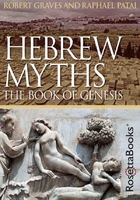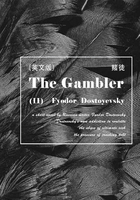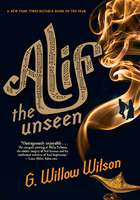Another in the long line of misunderstandings in their shared history, what caused Xerxes and Darius Adam to vow never to speak again, really began with a misplaced anecdote, specifically an incident that happened many years before in the summer of Xerxes's twelfth year, known always in the Adam household as "the summer when Darius Adam began terrorizing the neighbors' cats," known privately to Xerxes's future self as "the summer in which I realized something was very wrong with my father, something that would cause us to never have a normal father-son bond—the summer, years later, accidentally triggering the very last straw that would cause us to never communicate again." Ever? "Well, wishful thinking, for starters."
Los Angeles, 1987
Darius Adam began with kindness, kindness and some deception. He began by befriending them: Apartment #14's tabby Tabitha, #3's Pedro, #29's BooBoo (neither Xerxes nor his father knew for sure if this was the cat's actual name, hearing it only in the daily coos of Ms. Bialik or Ms. Bialock, whose name they weren't sure of either), and the two nameless identical black kittens who belonged to either #11 or #13 or both, who traveled in pairs and answered to either one door or the other or both. Gorbeh, being the Farsi word for cat, was what Darius Adam would resort to when all else failed: "Here, gorbeh, here, little pretty gorbeh, c'mon, now, damnit, gorbeh." He lured the gorbehs with bowls of milk which rarely worked—he blamed it on Xerxes's mother's insistence on only buying skim, something that not only he disapproved of, but apparently the goddamn everyday cats did as well—and so he moved on to cheese singles, which worked for some, especially BooBoo. In the end, he actually began frying slices of liver, taking a few bites himself, playfully offering some to Xerxes—who replied with the children's universal gag face, glad to see the household liver supply dwindle for this cause—and to his wife, to rile her up, for she found the investment a terrible waste, when for one week all we've had are leftovers, when I could only dream of liver, she'd claim, every day insisting she was going to make it that night's meal. The cats responded to liver. And when the liver was done for good—because Xerxes's mother eventually retaliated by ceasing to purchase liver altogether—they responded to cookies. It was soon discovered that the gorbehs had a thing for her favorite pecan-sandy cookies. It was as if before she could even attempt to draw the line, the very concept of lines had become obsolete. Everything was game.
One by one he lured them into their house. Xerxes's mother was beside herself: Cats in the house—what's next! It was almost as if the answer to that question was, Prostitutes—that's what's next! Xerxes thought to himself, imagining his father dangling fried meat at these forbidden for-sale women that he'd only just begun seeing in movies—attracting all sorts of crawling, purring, fishnetted, bed-headed women that smelled like a rumored musk he couldn't imagine but assumed was the scent of sex, something furry and sweaty and sweet. But the cats tended to stay close to the door, as nothing about the depths of the Adams' indoors interested any of them. Darius Adam would crouch to their level to negotiate with hands full of cookie crumbs, letting them timidly sniff and lick, and then with an urgency that Xerxes seldom heard in his father, he'd order Xerxes to bring him the bag. Xerxes begrudgingly would bring the canvas bag that was draped on his father's armchair, next to the Basic Algebra textbooks and ungraded student papers, the piles Xerxes's mother and Xerxes were never to touch—which Xerxes only once did and discovered a strange postcard with a paradisal sunset scene signed "Miss u—u best teacher man! Hugs&kiss, CeCe," which taught him never ever to go there again. He cringed at the sound the bag made—something like a possessed tambourine girl—a strangely heavy bag overstuffed with an ambitious supply of bell-studded cat collars. Xerxes believed his father when he said, See, they made these for one reason and one reason only, and that is my reason: to save. These are not gorbeh presents, he reminded them—his mother immediately reaching in the bag for the receipt, moaning about the expense when she didn't even have a winter coat, when her pumps were busted—this is a necessity, he'd declare. It was a necessity that he had to invest in, that he had been called on to invest in, he reminded them, because certainly if the neighbors were good cat owners, each and every one would have done this. But because they failed, someone had to. Xerxes knew what he meant although he took some unspoken objection with the had to; his mother didn't understand at all and so she bit her tongue and instead did that more powerfully infuriating thing of head shaking all the way through his process. Madness, she would think. Don't say a word, especially in the case of the word not being a nice word, his father would say, messing up the saying, perhaps purposely; he often botched his usually near-perfect English to make a point, Xerxes suspected, as if to say, Who cares about this bastard tongue? In any case, refraining from words-that-are-not-nice-ones—unless you were Darius Adam, that is—had become a family rule in their house of swallowed discontentment, of several future decades' worth of ulcers.
I take then you two are happy living in a battlefield?
I take you like dodging daily carnage? Remind you of home?
Death all around you—I take you think that's an acceptable sight?
Tell me, are you Adam or gorbeh?
Xerxes knew his father believed in a better good, that he was acting out of a certain humanitarian manifest destiny to institute right among all mammals of the modern domicile. He was trying to save. Save themselves in the end, via saving the spring's batch of blue jays who had suddenly, in their cheery oblivious way, taken residence among the palms and oaks of their conflicted suburban California neighborhood, in particular in their apartment complex, "Eden Gardens," as the sign read (to the embarrassment of Xerxes, who often found himself just shrugging when his teachers or friends or the others of the town's home-owning gentry asked his address and wondered, "Oh, is that The Lanai? Or are you Tropical Terrace? Oh, Eden Gardens?") The blue jays had come noticed by no one really, Xerxes was sure, except his father who would rush to their balcony, daily, and call out, Look! Look! Look! Look … blue jays. The birds would make lackluster eye contact, maybe they would chirp—Sing! Xerxes's father insisted, they really do sing—and then they would be off with their manic flutter.
Happy-go-lucky idiots, Xerxes thought, dancing on a death trap like that, the fools. Because of all the apartment buildings, why theirs? Why at the only pets-welcome complex on the block? Eden Gardens' expansive animal kingdom had no room for easily conquered fragile types—they already had the black potbellied pig on a leash belonging to the lanky Jesus-looking man that Xerxes's mother and father knew only as The Drug Dealer, and who Xerxes, although usually ready to disagree with his folks, had concluded, to his own shock, was a drug dealer; the triplet collies belonging to Silent-Arts-and-Crafts-Lady; the ancient pit bull belonging to The Mexicans; the guinea pigs on leashes belonging to the Weird Old Chinese Man; the buck wild ferret mothered by The Sorority Girls; and a rumored monkey that no one ever saw (apparently a ringtail—"the not-in-jungle-type, you know, the type the crazies by the sea get, the collecting money kind, like with vests, with two chinking gold music-makers, you know—but without all that, you know," claimed their building manager, a man they called The Pelican because of his unpronounceable Romanian name, and also because of his facial structure) … they had all walks of life, on every rung of the food chain, in Eden Gardens. But the gorbehs topped them all. They were the staple pet—everyone who didn't have something more exciting, something more far-fetched, something more California-crazy, had cats, except the Adam family, who had … nothing.
We have a pet Xerxes! (Xerxes deeply resented his mother's joke, from age seven, when he first comprehended its casual insult.) Animals anyway, she would growl, are dirty.
Says Allah and Allah only, his father would laugh. How ignorant your mother is.
What do you want from me? she would hiss. A horse, a donkey, a hippo, puppies, and rats everywhere?
Maybe something small, his father would say quietly, spookily, his gaze lost somewhere back in the spectacle of a stark boyhood dream, maybe even a bird. …
Other than that Xerxes had never heard a word about birds—any interest in them, any fascination with, any desire to rescue, any sense of a mission for—not a single mention of them from Darius Adam. And then with the blue jays' sudden arrival in May 1988 and their systematic serial slaughtering by June, birds suddenly became king. Dead gave their ends too much dignity, Xerxes thought, agreeing with his father that their aftermaths, the killers' nonchalantly relinquished evidence, all made the cause more noble. The dead blue jays appeared splattered, flat, like ink-soaked envelopes, stamped and razzled and bludgeoned and sucked and maybe even left half-alive in some flatironing ritual of the grisly cats, who all killed the same—Unless it's one killer, one bloodthirsty gorbeh, his father speculated at one point, but one is all it takes to spoil the bunch—like racism, the whole race suffers when one raceman wrongs. It was true. Xerxes especially felt his father's pain, when he'd witness him coming home from work those evenings, suddenly less lazy-eyed and dazed from overwork, but instead disturbed and jittery at the doorway, rushing to wash his hands, then sniffing them, shuddering, biting his lip, looking downright rabid—those were the signs that his father had just discarded a dead one.
He did the deed only once in front of Xerxes, on the way to school one day, when Xerxes came within inches of a dead bird. "Stop!" yelled his dad, shoving him into a rosebush. Xerxes, furious, saved himself from mass-pricking and watched as his father yelled, "Don't watch! Turn around! Run to the car!" His father meanwhile crouched down—as usual, totally unversed in child psychology, telling himself his child had done just as he'd said, looked away or left—and reached into his pocket and pulled out a ready plastic Baggie. To Xerxes's horror, it was the same type of ziplock bag that his beef cutlet sandwich was always packed in. His father, by this point, was always ready for the recurrence of his waking nightmare with a few Baggies at all times in his pockets, plus a scooping instrument Xerxes also knew well, the plastic spoon—again, to Xerxes's horror, the same make and model used for the shoveling of his pudding snacks, also in his lunch box. He watched, mesmerized, as his father directed the bag's mouth open wide, sighed a few times, and with the trembling spoon, scooped the messy, bloody mass of feathers and disjointed bones into the bag. "Run, run!" his father yelled, when he finally discovered Xerxes spying behind him.
And Xerxes would run, as fast he could, past the car, past the Dumpster where his father would mutter some curse like an anti-prayer and drop off the anti-sacrifice, past the corner and all the way to the next street, where his school would be in sight about a half mile away, and then maybe all the way to the next corner, wishing there was a way to get lost, get really lost in his one and only hometown, or farther, always thinking bigger, frantically scheming until the honking and flashing lights of his father's Dodge Omni hatchback would corner him at the curb, and he'd breathlessly, shamefully get into the car, both males silent and awkward, ashamed, of it, of that, and of everything between them or missing between them, until they'd get to his schoolhouse, grumble good-byes, until suddenly Xerxes was free to hop out, skip out in fact, suddenly relieved to see people other than his family and his world. He would go through the motions of the day, living for lunch, then at lunch give his lunch away or throw it away—whichever came easiest, whichever ensured not having to look inside at the Baggie and the spoon—and run with the spoils of his family's laundry change in hand to the cafeteria counter for a crusty cold square of pizza and a warm can of Coke, like all the other kids.
As Darius saw it, Darius was always right. The blue jays indeed stopped dying. If it were a game they would be in the win suddenly, but barely winning owing to their earlier losing streak, since no cats had died as a result of their living. It was amazing to see the gorbehs on their usual prowl, looking irritated but not that much more irritated than cats always looked, thought Xerxes, deciding early in life that he was not a cat person. They went along with their louder lives, prowling the apartment green with a newfound ruckus, sometimes a couple at a time in opposite corners, clamor against clamor as if their consciences were dialoguing. It was like a bizarre rude Christmas parody: everywhere jingled bells, and instead of Santa and his crew of reindeer there were only his father and a cast of bitchy cats. Once, in the early period of the bells, Xerxes saw Tabitha resting on a step; suddenly, at some sound she dashed off, her bells going nuts as a result, and forcing her to freeze up at her instantaneous cacophonics. From then on, Tabitha would creep around at most, playing a most ingenious game—In what manner can I still walk around as usual, yet without causing myself to go off? It took coordination, a light foot, a certain craftiness, and extreme mental and physical concentration, but if anyone could do it Tabitha could. Tabitha was smarter, Xerxes decided, the kind of cat who was aware of sitting on a time bomb, who was going to live with it and live well, making lemonade out of lemons, getting the most out of prison time by writing a memoir, learning Latin, perfecting her chess. Xerxes secretly wished Tabitha could thwart his father's cause by somehow managing, with her almost yogic conquering of the body's havoc, to silently devour a blue jay. He could see it in Tabitha's eyes sometimes, that very thought, as she watched the stirring burdened trees and listened patiently to the blue jays' boastful squawking.
It felt like forever, but Xerxes's stint as after-school-to-summer cat watcher was short-lived—just a couple of weeks that June—because the sound of the bells quickly became unbearable to him, and eventually to everyone, especially the cat owners. They caught on with remarkable lazy-Californian slowness. One evening, as the family lounged around the TV, avoiding conversation, there was a knock on the door, which as usual merited shocked looks on his mother's and father's faces—the look as if they were thinking Oh my God, who would possibly want us to open the door, who could possibly have gotten the nerve to put their knuckles to our rented entrance! Their social anxiety was a constant source of disgust for Xerxes, instilling in him early on a habitually peeved state that would overwhelm the spectrum of his emotional makeup later in life.
At the door was a woman: short, white, draped in black, tangled hair. She was a more recent tenant, Xerxes thought. She was holding a black cat under her armpit, clutching it like a handbag. In her other hand was a bell collar.
"So, hi, yeah, I'm in number six and, really, I don't want to waste any time here, folks," she blurted out in one speedy breath, before Xerxes's parents could even think of saying Hello, or more likely, What do you want? "See, for many days now, off and on, I keep finding these bell-thingies on my cat. I take them off, throw 'em out, and they come back on. Interesting, no?"
Xerxes rejoiced at the very matter-of-fact way his father nodded. This would get good, he thought.
"Yes, well, Castro is my cat," she said, suddenly speaking more slowly, perhaps picking up that they were foreign, Xerxes assumed, as usual, whenever any American seemed artificially polite, slow, or simple around them. "Mine. I don't like having strangers put things on my cat. I find that screwy. I would have said something sooner, but I couldn't figure out who had done it. And then I talked to another cat owner here in Eden, who had the same thing happen to her. And she had spoken to another family that had had the same thing happen to them. Eventually, we found an owner who claimed to have seen you take the cats into your home. So … we have a few requests. …" Still clutching Castro as hard as ever, she dropped the collar and produced a crumpled piece of paper from her pocket.
Xerxes's father looked back helplessly at his wife and son.
Wife and son both stayed seated on their respective couches, pretending to be absorbed by the TV commercials, feigning that they couldn't hear a word at the door, that it was none of their business anyway, that it was not their fault, they were not involved, that they were deaf, dumb, brain-dead, plastic. They just happened to live with the bad guy.
She cleared her throat and read her statement: "So. Our first request is to know why, just the basic reason—that's A. Our second request, B, is to know why we were not involved in your little mission. C, we need to know when and how and what was used to get the cats into your home. D, we need to know if you plan on stopping this now. E, what are you thinking, what's your fucking problem, what's your fucking name even?"
Dang, thought Xerxes, double dang. It was hard for him to pretend not to have heard that final, certainly improvised, incredibly effective arsenal-morsel. What Mrs. Cook, his last elementary school teacher, had once referred to as the "effin word" had suddenly surfaced naked, loud, and toxic in all its verboten glory, like a defecating bogeyman, perfectly and shockingly used by, of all people, an adult, an adult stranger, over, of all things, his father's mission to put bells on a bunch of annoying, bird-hungry cats. Xerxes was thrilled. He watched his mother's eyes close, felt the clench in her jaw, the deep breathing, he could almost hear the ghost of her mind control tapes bellowing, I am an endless warm beach in the evening, troubles like waves brush against me and phoooooshhhhhh. … She was mortified. It was possible, Xerxes thought, that his mother, having never been on an American playground, having watched few movies—and the few being Disney as far as he knew—had never even heard the word uttered out loud. For a moment he felt ashamed, recalling the boldness of his early youth, when at age eight or so—the age when he first heard it—he decided to present it to his mother at home, craftily phrasing it to her like, So mother is the eff-you-see-kay-word pronounced fee-ook? He was, of course, aiming for absolute innocence, as if hoping his na?veté would be curtly rewarded with a short lesson in why not to say that word, the frosting on top being possibly trapping his mother into having to properly pronounce it. She had instead said, I do not know how, all I know is we do not say it, now get out, shut up, stop it. That was all.
But now that he had heard it used so appropriately, he agreed that the word could really be a terrible word. Somehow it worked for comedy value when uttered by the fattest, dumbest, red-faced blond boys on the playground, was a word for the streetwise robber on late-night TV, a word that had magically escaped radio-bleeping on a rap song—but from this average, angry American woman, armed with an armpit full of feline, it was frightening.
Xerxes closed his eyes. "There is a child in the house," he could hear his father saying, "a child who does not know such words." He could hear his father lying, "and I do not think the situation requires the use of that word."
"What does the situation require then? The police?!" the woman snapped, pissed off. "You've kidnapped our cats and wrung their necks with bell-thingies! The police maybe, huh?"
Enter a long silence. Xerxes knew those, the ones that often came after a conflict, after the conflict's climax in particular, often between his mother and father—the worst one having happened at one Saturday breakfast when Xerxes's mother had hurled a croissant into his father's face for reasons that were unknown to their son but apparently very clear to her husband who had retaliated by strangling an innocent stick of butter. The silence had been very long. Xerxes had even had the chance to time it, it was so long. (Exactly 197 seconds, his digital He-Man watch revealed.) He had learned then that the best thing to do during such silences was to simply cough. Simple formula: loud noise→loud noise crescendo→SILENCE→cough! maybe even cough! cough! When a student got chastised at school and the silence descended, Xerxes coughed. Often other students, a few, would follow his lead. It felt as if they had tapped into some social Band-Aid straight out of the pages of the tenets and anti-tenets of adulthood, the conversational rescue, the nonverbal reliever. Like padding a sentence with the soft fat of "um" and "like," it just lubricated the austerity. Xerxes found it very useful and once when he used SILENCE with his mother, he was terrifically tickled, not to mention intellectually validated, by a quick cough-cough-cough! triplet from his father, who was staying out of it but supplying some rope.
But he could not cough in this instance. He knew why: the danger with coughing was that it made your own presence known. There had to be the faith that the two or more players in the silence game were so engrossed in their static conflict that their concentration could not be broken by an outside accidental utterance. But here he was not sure. Who knew the degree to which the angry woman was invested in having just a showdown with Darius—she could be as likely to lash out at any target. No, they were all involved and to cough here would be suicide. His father would have to handle this.
In his own way, he was handling it. "First of all, my name is Darius Adam," he said slowly when he did finally speak, slowly but firmly, "and I did not do whatever you're talking about and also I don't know what you're talking about."
It was brilliant—shocking, but brilliant. He swore he saw his mother's face go from a clenched grimace to a sudden split-second ghost of the beginning of a grin, and then quickly back to clenched grimace.
The woman, obviously reasonably intelligent, didn't believe him. "Oh, okay. Right. You have no idea, no idea why something like this would be happening?"
His father shook his head in a way that indicated understanding, empathy for the cause, and utter condescension—as if to say, What a crazy woman you are, asking me, someone who did not do whatever you're talking about and also who doesn't know what you are talking about, bothering me with questions. Okay, I will just humor you, how's that?
"I will say this," Darius Adam offered, "If someone is doing it at all—for any reason—I would imagine it is because the person wants the cats to make a sound, yes? And a loud sound. Now why would someone do that?"
"Are you asking me?"
"No. Just know there is a reason for everything. Ask yourself, if someone wants the cats to be noisy, why? What benefit? Cats are quiet, yes? And what do quiet cats do?" He paused dramatically and Xerxes knew that what would come next would be good—his father had that deeply contented half smile that promised that his brain had just concocted an effective verbal punch: "They kill. Kill well."
"Kill what?"
Xerxes's father took the opportunity to add a laugh, the hard laughter of adults that rarely expressed genuine humor, but rather cynicism, darkness, a sort of inner deadness. Somewhere deep inside, Darius Adam was ready to decapitate this woman.
"Oh, let's see … birds? Birds, maybe? Blue jays?"
This time it was the woman's turn to laugh. It was a witchy cat-lady sort of laugh. Even though his father was in the wrong in every way, it felt good for Xerxes to imagine the woman defeated.
"So you've gone out, bought these ridiculous thingies, put them on everyone's cats, so the birds can, like, get away?"
"Someone has done that, I believe."
"That's not the solution. To kidnap other people's cats and force them into these stupid things to save … birds. Please! They don't belong to anyone."
"You're right," said the man named after a mostly unconquerable Persian king, with a half smile. "They don't belong to anyone. They belong to everyone."
The silence again. The woman looked disgusted; Darius looked triumphant.
"I don't want you touching my Castro or anyone else's cat ever again," she snapped. "I will call the police."
His father shook his head—additionally implying, Why do you think it's me, so misled!—as he shut the door on her and her cat's equally homicidal mugs, the way he had seen done on a million television situation comedies—a move she earned after her hostility, her profane language in front of his woman and child—and of course, the opportunity that came with it, the cherry on top of a grandslam banana split like that, was the word, a single word, that both Xerxes and his mother knew all too well, his favorite word, uttered when they had crossed some sacred line with him too weary to say more, when he reminded himself that he, Darius, was born for the last word of last words: "ENOUGH."
It was many years later, when father and son were together in Xerxes's Manhattan studio, sitting in plastic chairs and drinking hot milk and eating dry Fruity Pebbles, that it all came back to Xerxes and he asked Darius, in a window of silence, simply, in total innocence, to talk about something that had been glossed over in the many humorous/atrocious anecdotes of his youth: his father and his mission with the endangered birds. …
New York, 2000
Hot milk?! Fruity Pebbles?! Darius couldn't believe it but it would have to do. Xerxes had run out of tea, he lied to his father (since he never bought tea, ever), although he did have a cup's worth of instant coffee (his father wouldn't touch the stuff, he told him, especially the instant stuff), so his father, expecting his own constant dismay while in his son's bare-bones new abode, finally dumped some milk in a pan, turned up the heat, and declared, like everything else, it will have to do. Outside it was freezing, after all, and Darius Adam would not deal with the East Coast chill without a warm inside especially since his son's apartment was a goddamn igloo (The heat is on, I swear, argued Xerxes, to which his father snapped, Always a liar of convenience!) And as for food, Xerxes offered potato chips, which his father looked at as if he had never seen a Pringles can before, awestruck at his son's supposedly adult living conditions. Xerxes offered to make some pasta (No sauce? asked his father—I prefer the other stuff … ketchup, said Xerxes) or perhaps some canned vegetarian chili? Finally, his father, after rummaging through his mostly empty cupboards, pulled out the only product he found several boxes of: Fruity Pebbles. His father sniffed at it, shook his head, sniffed again, shrugged, pulled out a bowl, and the two men passed the evening sipping at slightly sugared hot milk—oddly, nicer than they could have possibly imagined, they both thought independently, although it was making them lazy, slow, more bored than before—and dipping for fingerfuls of strange pastel-colored sugar-crusted cereal bits.
"Strange indeed," said his father after a while, after their usual too-long breaches of dialogue, in which chewing, swallowing, sipping, a stray radiator chime, and an occasional old-tactical-standby cough from Xerxes were the only sounds punctuating that depressing institution of silence in Xerxes's apartment, "your life."
"It's okay."
"What were the places you lived in after college like? Certainly your roommates did not live like this?"
"Worse."
"You like being alone like this?"
"Yup."
"Awful."
"Whatever."
His son's first apartment alone was nothing like what he had said it would be. Darius Adam remembered the first letter he got from his son that called the place spacious, almost one bedroom, high ceilings, wood floor, two windows, bath and shower, centrally located, only twelve hundred dollars a month! He had asked what the big deal was for a "wood floor" when they had wall-to-wall carpeting in the apartment he grew up in. Dad, everyone here wants hardwood! His father asked him how he vacuumed. He didn't, he said. Oh. Twleve hundred dollars is a bargain then? Practically free. Oh.
"I could not live like this, son. I just want you to know that."
Xerxes knew he wouldn't understand—or would pretend not to, although he suspected that deep down inside his father envied it all. With his father it was always Opposite Day, his black-to-white contrarianism reminding Xerxes of the stuff of that wacky schoolhouse pseudo holiday: pants worn backward, fingers crossed behind backs, poker faces over untruths, et cetera. Kids loved that negation crap and so did his father, Xerxes had decided long ago. His "I could not live like this" probably translated roughly to I would do anything to switch places with you and not live with your degenerating menopausal mother in our suffocating cultureless California life, where there is no such thing as central location.
They had come to the point where they were both men, Xerxes at twenty-five, a man finally, supposedly; and his father fifty-five, a man still, thankfully, not quite an old man yet. They would have only a few of these years in which they were of a shared demographic, both men realized, never commenting on it, even as they knew it was one of the few safe commonalities, other than their surnames and blood, that they could discuss without controversy. For some reason, this idea brought Xerxes to the point of tears a few times. He was aging, his father was aging. Soon all they would have would be their past, all conversations starting with "remember when"—the only future for him being his own old-man-hood and for his father … death. Shit. Life was actually short. Most times Xerxes felt grateful for that, but other times, like this, his father's first trip to see him since he had moved out for college, he felt all the sadness of life's midget proportions like the dull throb of a bad knee on a rainy day: we are all dying, we are all dying. …
Maybe it was that sudden tenderness for the situation that had made him ask about it. It was the first time he had remembered the birds again, somehow for Xerxes one of the most moving memories of his youth, one of the only ones that didn't paint his father as a full-on asshole but just a confused, okay-hearted, perhaps bored man, trying, just trying, trying his and their lives away.
"Birds?" his father squinted his eyes at the mention.
"Yes, the birds, the dying birds," Xerxes lazily muttered, his stomach upset with the oppressive oversoothing of warm milk.
"Huh," grumbled his father, neither an acknowledgment nor a negation.
They were silent, both men waiting.
"Do you eat any vegetables?" his father suddenly asked. "Potatoes?"
Xerxes shook his head, brazenly.
"You look sick," his father finally raised his voice. He suddenly grabbed the bowl of Pebbles, walked over to one of Xerxes's two windows—both barely equaling one of the windows of the house he grew up in, Darius Adam observed, just two narrow slits, just giving a slight, dreary glimpse at the dirty brick of another complex next door, hideous!—opened the latch and dumped the Pebbles out into the street.
"That's for those birds you want to talk about," he snapped, and then lay down on Xerxes's sofa/futon and proceeded to take a nap. Xerxes knew well that the nap was just an excuse for his father to shut him out, his father who for unknown reasons was now in disgusted mode—although in Opposite Day logic his grumble could mean, I am so happy for you and your new life, son. Xerxes eyed his playing-dead pose and announced that he was going to go out for the paper, and went out, got a paper, sat inside the corner bar and had a Scotch on the rocks at five in the evening, alone.
Once the door shut, Darius Adam popped his eyes open and sighed. He did not sit up. The whole thing exhausted him: his son's life, the apartment, the East Coast, New York, the milk, the Pebbles, the bird shit. It was all bad. And to top it all off, he could not sleep. He hadn't slept a night since he had gotten here. Sure, there were noises outside, honking cabs, screaming humans, city stuff, but he had been sure that he would sleep once away from certain unsavory elements of his world: For instance, his wife—no more of her constant elbow jabs and hissing in the middle of the night, something she swore she did in her sleep, though once in a fight she admitted she did it consciously, to get him back for snoring all the time. And work—no more being at the mercy of the community college's odd hours—helming an Adult Education Chemistry class at 10 p.m., a Remedial Mathematics 1 class at 7 a.m., Beginning Bio for the English-as-a-Second-Language set at noon on Monday but 2 p.m. on Wednesdays and 5:30 p.m. on Fridays with a few Field Trip Saturdays of course, or the class he wished he could rename Slow Substanceless Science for the Senior Citizen Set which went on and on for two hours five days a week, 30 weeks a year; and no more backaches at the podium, no more having to listen to the sound of his robotic orator-voice for far too many hours a day a week a month years, correcting, reminding, answering, encouraging the hell out of them, over and over. Truly, he had plotted his vacation as running-off-to-evaluate-what-time-had-made-of-his-son, but it also had the merit of serving as a running away from all that low-level everyday knowing.
But no wife and no work, and still he could not sleep. Somehow in recent years he had developed peculiar discomforts with the very ritual of sleep. First of all, for the first time in his life, when he was actually sleeping, he was having nightmares routinely. Since Xerxes had moved out—he chose to blame it on his son's departure, another in the long list of Xerxes's crimes—he had had bad dreams every night, vivid ones, pure horror, that he always remembered. It was possible that he had had bad dreams before, but just didn't remember them. After all, he remembered being in his thirties and at an evening party in Tehran, where everyone, drunk as hell, was recounting dreams, and he realized he was silent with nothing to share because he had never remembered a single dream. When he finally confessed this to the rest of the guests, everyone laughed. Oh, c'mon, yes, you do! they insisted. Not a single one, he swore. Oh, please, certainly you do, Darius, in your childhood! He shouted back finally, My childhood is blank white, dead black, no dreams! and that shut them up. Sometimes he was sure people just made up their dreams for conversation's sake, especially at parties when there was nothing to say but something fantastic and wild and indisputable that would elicit a safe response: laughter, nodding, oohing, ahhing, life-affirming sour nothings.
That, sadly, was then. Add America to the equation and, like a live-in visitor who claims he'll crash for a night and stays forever, in came the dreams! Then add Xerxes, age eighteen, seeking out the farthest point from his family, the East Coast, and in came the nightmares—and always, always the worst sort. Whereas those guests had recounted their subconscious yarns as involving animals and abstract images and colors and foods, his dreams felt deadly realistic. They were real in that Darius—starring always as his very real self—was always involved in something fairly normal, enacted in a feasible manner, ending with a horrific outcome that was entirely possible in real life. No goblins, no demons, no hellfire. It was simpler than that. He was always in some highly authentic danger or, worse, helpless to assist someone in the face of danger. Eden Gardens was there, his wife, Xerxes, and …
There was a young girl, who came and went, the object of the bad dreams' worst crimes. In his dream life, there she was, a female that he assumed was the daughter he had never had—Xerxes's phantom younger sister perhaps, a nonbeing never contemplated by Darius or his wife because, especially in a life postexile, who could go through that again, put another being through that, even more so when this child's—a foreigner's—future would be even more unknowable to them than their own. But apparently they were nobler people in his dream life—they had bothered to have a second child. And indeed it had fucked up their lives, because this little girl was always in danger. She left nightmare material in every corner of Darius's mind that she roamed. She was a skipping little thing, often in a sundress in what Darius regarded as suitable girl colors (pink, red, orange, lavender, white), head adorned with what he envisioned as the classical Persian ringlets, although sometimes they'd rebel, haloing wildly around her face and down her shoulders, framing her golden skin, highlighting her bright brown eyes. She'd talk excitedly with her hands, constantly laughing, never pausing, nimbly dashing with those thin fragile limbs, galloping and skipping and acting out, being alive as if it were an art rather than just a given. She was something. Until some abstract nightmare villain would strike and suddenly there she was on a deathbed, in tears, skin gray and eyes foggy, sighing her last breaths—or in a dark room tied up, crying for parents who would always arrive too late—or in the car of a sinister silhouetted man who had offered her poisonous candy, offering her his lap—or in a disaster, a fire, an earthquake, in which she'd be the sole victim when the doorway collapsed—her screams, her final cry, the last thing for a father's ears until he'd snap himself awake and, like the movies, wake up forced upright, drenched in a cold sweat, asking a silent night what the hell he did to deserve that. Oh, his imaginary daughter and her many imaginary deaths. A perfect girl—and that was the problem exactly, because nothing in the world was more in danger than perfection.
His son was thankfully, painfully, imperfect and as he got older the imperfections became more cemented. Darius was grateful for the grim reality of his son.
He could imagine what she would be like if he was visiting her, in her first home. She definitely wouldn't be living in a place like Xerxes's but in a reasonably priced, say, $600-a-month apartment, with real windows and a real view—of Southern California, of course—and recently vacuumed carpeting, a teapot, vegetables, gratitude, and enthusiasm. Thank you, Father, she would say, in Farsi even, for everything that you instilled in me, for providing a good example, for giving me ample love, which has now translated into me living a happy normal adult life in a home that I selected with your approval in mind, and thank you for everything, thank you most of all for having created me, even after what you went through with my brother, thank you for putting up with the bitching—oh, this girl wouldn't even say "bitching," she'd consider that vulgar—and the odd hours, and Mother's cravings and her fits, and the expense, because of course in conceiving me, it was a choice, and for you having made that decision I will live every moment of my life in tribute to my gratitude. He would laugh and say, Oh c'mon, you didn't need to say that. She would say, Oh yes, I wanted to say that. But I don't mean to annoy you with my effusions, so forgive me. He would chuckle, plant a kiss on her head, and at her suggestion they'd take a long walk through the city, laughing at all the lonely, lost, loveless families, and all the while he'd be joking, Oh, Shireen, sometimes I just want to slap some bad sense into you! Like, be bad, you good good girl!
Shireen. He imagined that would be her name. "Shireen": sweetness. Even her name would contribute to the joke.
He was still thinking about that other road not taken, the daughter he never had but often lost, when the son he did have stumbled in an hour and a half later, looking flustered in a way his father had never seen before.
"I got the paper," his son muttered, tossing a section onto the floor.
"I see."
"What have you been up to?" his sole offspring had the nerve to ask.
"Sleep."
"You sleep a lot, huh, suddenly."
"As much as I can. It's my one freedom, Xerxes."
"I'm an insomniac," his son said, grinning wildly.
"I'm not surprised. Maybe if you ate better."
"Right," Xerxes laughed, sitting on the floor. He was suddenly more drunk than he thought. He had alternated Scotch with vodka gimlets just for the hell of it, and here he was very much on the border of that very hell of it.
"I am," Xerxes declared, and after the slightest pause, exclaimed, "great!"
He was focused on great! great! great! when his father killed the happy buzz: "What?!"
"Didn't you ask how I was, Dad?"
"No, no, I did not." His father's voice was like a chain saw cutting through the inconsequential.
They sat in silence for a few minutes.
His father wondered whether he should again say that his son looked sick, even though for once there was color in his cheeks. He looked messy but invigorated, wind-whipped, maybe even happy.
"Dad," Xerxes said suddenly, "maybe we should get out of here. It's nice out, cold but tolerable, pretty, even. It's Christmastime! Maybe we can take a walk through the city for a little bit?"
He was amazed—his son had channeled Shireen. He was for a second moved by his son. The outdoors had done him good and now here he was wanting to be with his father, wanting to share an evening with his father. There was nothing he wanted more at that minute.
But he strained the sentiment through their most commonly used communication contraption, the Opposite Day translation apparatus. "I don't really want to," Darius said, measuring out his response, "but I will if we must, if you are insisting."
"Afraid so," sighed his son, understanding and thus reciprocating by sucking the buzzed joy out of his voice. He found them almost endearing, those moments when the old illogic still applied.
New York: dry and icy when not wet and slushy, and steel blue when not dead gray—those were Darius Adam's first impressions of the city. The holiday element just made everything look glary, blurred, hasty. Scattered baubles of Christmas lights here and there arranged to scream their usual nonsense mantras, fat old men in red suits carrying giant bags full of padding, flying plastic deer with neon-red rubber noses, overfrosted dancing cookies and candy canes. The usual American nonsense, his father thought. He had lived well over twenty American-nonsense-Christmases and every year when it came, he'd realize it all over again: this country is absolute glorious bullshit.
Xerxes insisted they stop at a nut vendor, something he'd never done. "It's a very New York thing, they say," he said. Admittedly the hot cashews, coconuts, and peanuts raised a ridiculously good smell over the usual city stink, but Darius wasn't sure he trusted the whole operation. Who were these dark-skinned men with their steaming nut carts, with scarves wrapped tight around half their faces, with their Yankees caps, questionably clean fingers, and wretched accents?
But he was starving and knew he could not count on his son's apartment for sustenance. Xerxes ordered for them.
"Thank you," Darius said staring bleakly at his $1.75 worth of greasy hot nuts. He looked at the nut vendor for a good minute, just standing there, and finally asked, "Where are you from?"
Xerxes tried to suppress an eye roll—of course his father would ask that—he had already asked three cabbies (one Bangladeshi, one Tunisian, one Israeli—his father claimed all three were lying). Basically any man who was ethnic-looking to him, possibly Persian-looking, with a strong accent and a service job—which required he be polite and appease Darius's "curiosity"—was a target.
"I am from New York," the man gruffly answered back.
"New York? Really? No, I mean where are you really from?"
"Okay, New Jersey."
That was that. It was the second time during his trip that he had gotten an uncooperative answer. The first time was on the plane ride over when he had suddenly turned to the olive-skinned woman sitting next to him—attractive, his age, very likely Middle Eastern, probably a Persian Jew with her sternly made-up face, corporate blazer, and hard-hitting gold jewelry—and said, Hello, my name is Dareeoosh. Daree-oosh Odd-damn. May I ask where you are from?
I am from the United States of America, she had said, like you? It was chilling how she added that. He had no idea what to make of it, so he smiled and was grateful when she pretended to be asleep for the rest of the flight. Maybe you shouldn't ask that, his son had said when he told him about it.
"Maybe you shouldn't ask that," his son said after they left the nut vendor.
Darius grunted. New York. Hidden identities everywhere. Of course. It was as he expected and more, clichés coming alive at every step. Cabs pushing and shoving like giant yellow roaches, much in the style of a third world country, much in the style of his country actually, lawless and rowdy and efficient. The people and their attitudes, everyone constantly running into him and then insulting him, stepping on his feet, pressing up against him on the subway, asking him questions like what time is it but never waiting long enough for an answer. The bagels, hot nuts, black coffee, fast food, faster food, food on the go, whatever could be eaten while speed-walking. It was uncivil. And now throw the Christmas lights into the occasion—it was blinding. He could barely see the city, much less gather the resolve to hate it properly.
His father paused on Ninth Street; it was decorated with white-lit doves carrying banners that said "Peace." He squinted his eyes.
"Nice," said Xerxes.
"Strange," his father finally said.
Xerxes again asked, "Dad, the other day I asked about the whole bird thing. Remember?"
That was his son. Deathly stubborn. He turned so he could look his younger double square in the face, employing every intimidating facial muscle he could enlist.
"Xerxes," he said, "I remember." He had no idea how his son even knew. It was one of the loose ends, one of the unfinished complicated parts of his past that he couldn't resolve, another enigma in his own world that could never rematerialize now, since they had lost their Iranian roots, something that would require not only a boat or a plane, but a time machine, and maybe an old brain, maybe subtitles for himself suddenly, to explain how the hell, how truly in the hell, he and his childhood and that old country could have wreaked such havoc.
We all have a topic that we avoid—the one that might keep us up at night should it pop up in our heads, the one we have spent a lifetime struggling to block, Darius Adam would write it himself just like that, if he could.
"So, yeah, the birds, Dad, the birds," Xerxes was saying, like a windup doll. "What was it about the birds. …"
It was no good—his son was making him lose control. If anyone could make him take that leap into the bad zone, it was Xerxes. He had, after all, rehearsed it many times in his head, he in tears, often hysterical and bowing into the tiny hands of Shireen, who worshipped birds, who wished on stars, who didn't understand her father's hardness, his fears, his dark old ways … he'd be on his knees apologizing to her, Sweet sweet Shireen, this is something that makes a man unfit for kids, his own past kidhood and how he spent it … Shireen, he might say, at least I know what my hell will be like. She would be in tears, too, and beg him for the full story, and he would say it in a whisper, not his, but some ethereal voice-over which would somehow soften the blow, perhaps even make the bad parts imperceptible, ultrasonic, subliminal, for the ears of his young sweet Sweetness—and now suddenly for his older harder Xerxes, though in a more guided voice that came closer, was more willing to be grounded, and yet more likely to crash down to earth, he spoke:
Here you go, you asked for it … so. Back when we were kids, back in the old country, we boys had some games. I was barely a teenager when I first remember participating, but a lot of us boys did it, from really young through high school. It was a neighborhood game and as far as I know, it never left our neighborhood.
And it will not leave this conversation.
It was more or less a game we kept secret from the adults but maybe they knew and maybe we even learned it from one of them. I don't remember. I don't even remember how long I participated. I really just remember this one summer, the summer when your grandfather died—I played it a lot then. It's funny, I'm saying "playing." There wasn't a lot of play involved.
In the old country, we had doves. For all I know, this could have happened in every neighborhood throughout time—except I'd say only we had the doves. I know here they're rare or seen like some big deal, but in the old country they were nothing, nothing more than white pigeons. They were everywhere. I'm telling you now, it was no big deal. We'd meet in this courtyard, late at night, in the summer. We'd capture doves, one by one. We'd shove them under our shirts sometimes—we thought this was hiding them, or else a good way to capture them, I don't remember exactly why. I did it because the others did it. Anyway, we'd be giggling with the tickles because of their feathers, all flapping like crazy. We'd get pecked and scratched in the belly. These doves might be doves of peace to you, but they were not so innocent. They could fend for themselves—they could fly, damn it—and they could hurt us, too.
Somebody would bring the cage, and somebody, the kerosene. Bear with me here. One kid was in charge of the kerosene. Sometimes the kid had gloves and sometimes, would you believe, he didn't. But that kid—he'd be older usually, a hard kid, a pro or something (but not harder than the guy I'll tell you about next)—he'd go around and slap the doves with a little oil. You didn't want too much, because with this type of thing you wanted it to last. There would usually be about a half dozen of us, boys and birds. The birds wouldn't do much more than flap a little. Sometimes it seemed like they liked it, the kerosene feel, like it was a lotion of some sort, soothing or something. I don't really remember though. Maybe they flapped more, maybe they knew, maybe they were just crazy from the smell. The smell wasn't great. You kids don't even know what kerosene smells like. Anyway, I can't remember how much time would go by because we were too excited at that point, in the dark courtyard. There were no lamps. We were the ones with the lights. We thought, I suppose, that we had no choice. We had to make light. In our thinking—just thinking, different than knowing, different even than believing—out of death came hope.
You can trust that sentence as much as you can trust any sentence.
Anyway, the hardest boy of all, not necessarily the oldest, but the boy who'd done it enough, would be in charge of what came next. He'd take the bird, pop open the cage, lift it in the air, take a lighter from his pocket, say Ready? This might be the point where the coward of the bunch—and he'd be ridiculed for this forever (it was never me!)—this kid, often one of the younger ones but not the newest, though definitely one who'd seen it before and didn't want to see it again—this kid would go running out and away. (We'd find him later and threaten him and he'd never say a word and would you believe, sometimes he'd even join again the next year.) So we'd repeat, Ready! And that hardest boy would light the flame underneath the bird and the fire would catch—and because we'd put just the right amount of kerosene, not too much, it would spread with a certain slowness. You can imagine. You can imagine what was happening to the bird. The boy would open the cage door and the thing would go flying, madly, wildly, desperately, like all hell, like a star, a big big wow, off off off away into the distance. They were our lights. Sometimes if you were lucky you'd see the ball of fire go go go and then come down, still in flames—we called those shooting stars. It was all about stars, you see, hope burning bright and gone, a promise we made and killed. For once, it was in our very hands. That was it. Would you believe—
And she would not. That would be Shireen's greatest gift to him, always. She did not see his ugliness. When it was blatantly there she insisted he was playing a role, just joking, making a point. For Shireen, like a cloud the thing would exist, then quickly disperse, then poof! disappear. He would be absolved. Would you believe? She would shake her head, laughing. What a kooky father she had. He would hug her. Absolved.
For his son this was not the case. "Would you believe," Darius muttered quietly, capping the tale with a cough, and Xerxes nodded. He was in fact nodding the whole time, as if it was a story he didn't know and yet sensed all his life. Darius could think of no other word for his son's expression than glazed. He looked deadish, in a neat, preserved, polished sort of way. He had seen his son look that way once before.
Several minutes later, Xerxes cleared his throat and said with an unprecedented carefulness—he was suddenly more sober than he had ever been in his entire life, he felt—slowly and quietly, with an additional softness that wasn't his, or any Adam's at all: "I wasn't asking about those birds. I didn't know about that. The blue jays and cats, that was my question."
His father felt a deep runaway train rush right through him, like an elevator of sense dropping deep down through his guts and landing with a thud into his pelvis—Xerxes had gotten him where it hurt most, in the zone of pure lunatic error. "Oh." It was a sensation he rarely let himself feel; it was the sensation of a man doing what manhood requires he avoid: admitting he was wrong. "Oh, I …" He had made a rather substantial wrong. Of all the fuckups in his life, this one was bad, but. There was thankfully a but: it was perhaps the most necessary, for it was a fuckup that felt like a fuckup but had the slightly positive side effect of taking that proverbial load off his shoulders.
Darius tried to sigh but it came out like a moan.
"Oh, well, they are still causing problems," Darius rasped. "The cats. The birds. I mean. You know. The animals. The old trouble, still."
His son didn't seem to hear him.
His shoulders did feel relieved of some load, but it was as if he had traded that for a different type of burden—instead fangs, nails, prods, beaks poking into his back. He felt injured suddenly. Something reeked of his doom.
In trying to stay calm, in trying to think up instead of down, in aiming for fix-it mode, Darius Adam went ahead with what often happened when he had such intentions: the opposite. He exploded.
"What can I say?! You came out of it, from me, from my life, how can it all be so bad? How come it's all so bad with us? I'm not afraid to say it's you, Xerxes! You can't face that you were built of my past—hell, even the past before me—can you? You've decided to be of no past! Ha! Think you can come here and pretend there was nothing and I was nothing and everything of Xerxes-before-he-came-to-New-York is nothing? You think you can cut it all off, eh?! But it doesn't work, I am telling you! So for once in your life, your goddamn so-far-so-short life, face and accept it, all of it, then get over it, all of it, and, enough, let us move on!!"
But Xerxes couldn't move, much less move on. For the first time in his life, Xerxes felt nothing for his father, absolutely nothing. His own devastation shocked him. Was it the birds? No. He didn't care about the birds—at least, not like that. Perhaps it was his father's cruel and unusual past, a world forbidden to be spoken of, that Xerxes had always sensed intrinsically? Another reason, any reason, a final reason, to hate himself and his family? All he knew for sure was that the feeling had familiarity. This was one in a long line of his father's stories that he had unloaded on him, burdened him with, but, as often happens with what is saved deliberately for last, this one would have to be the worst. The past had come full circle; this story had pulled with it every other story; history had become theirs, just theirs.
"Son, are you hearing me? Your father is speaking to you—hello?"
It was too much. Xerxes felt his body grow cold and he shuddered, shuddered from the soles of his cold feet to his numbed skull, shuddered long and hard as if a ghost had taken residence in his body, and he looked around and sought something in the sudden quiet of his adopted city's streets, as if aware that something bad, something worse, was going to happen to them all. He suddenly felt like he could sense millions of panicked pulses around him, like the instability had become bigger than just theirs. The old phobia overtook him until he was sure the world around him wanted to explode and he blamed himself. He had let his father come to him, he had brought his city to his father; he had done the one thing that as a child he had learned never to do: he had let the worlds mix.
"Let's go back," Xerxes heard himself mutter, slowly scanning the infinite blocks of city, until his eyes had nowhere to go but to fall on his father.
They finally faced each other, silently, for what felt like the passing of many generations. It was as if their entire lives they had waited for the power of a single story to split them forever.
The world reveals its intentions in sick ways, ways livid with meaning, and Xerxes knew only time would tell why that story had to be the one. He turned around and began leading the way back to his apartment. Tomorrow evening, his father would be gone. They went to bed immediately that night. The next day Xerxes left a note saying he had errands to run all day, a note his father would get late, as he had been out running errands all day himself. When they finally met up again in the evening, a few hours before his father's flight, they stared at each other over an empty suitcase. "How heavy can a carry-on be again?" was the sole question he was able to ask of his son. Xerxes shrugged and muttered, "Heavier than you think." That was that, and he quickly decided it was time to get the paper downstairs. His father's flight was in two hours. He went out, got the paper, and patronized the corner bar for another four hours, until he was absolutely sure that his father would be gone, until he was completely certain he'd be sufficiently wasted beyond caring.
In their minds, they remained in true sync on one notion: they had both decided they would do their best to make that moment, the one about the heaviness of carry-ons, the last time the two men would speak ever again.

